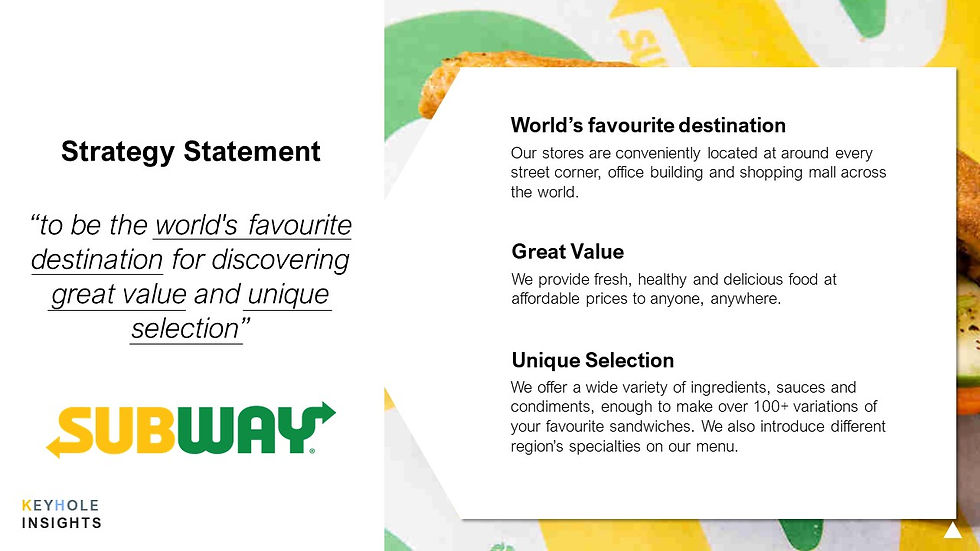What is Strategy?
- KeyHole Insights

- Jan 7, 2020
- 3 min read
Updated: Feb 26, 2020
The fact that the words "strategy" and "strategic" have always been associated with decision made by the highest ranking officials in business, governments and military has lead to plenty of interest in this topic. Yet, defining “strategy" as decisions by top leaders and executives would do the term injustice. It does not help that "strategic" investments often refer to investments whose returns does not justify its existence or are simply loss-making in the short-to-medium term.
Most companies have strategies that are fuzzy and undifferentiated. Some companies' strategies even feels like illusions of grandeur. This is not uncommon nor is it surprising. Good strategy is the exception rather than the norm and it certainly has not helped that this field has been swarmed by the many motivational experts as well as leadership and management gurus that has befuddled the definition of strategy with concepts of ambition, inspirational leadership and operational efficiency among others.
Why is Strategy Important?
Having goals, ambitions, vision and values are important, but they are not strategy. A good strategy identifies the best course of actions or the path of least resistance to reach these goals. However, it would be wrong to assume that a good strategy is just a broad-based generic direction. Good strategy requires a coherent set of actions or policies that not only draw on existing strengths, but create strength through the nature of these set of mutually reinforcing actions. The essence of strategy is about doing different things from your competitors or doing similar things differently than your competitors.

A good strategy articulates how customers' needs can be delivered by your company in a way that your competitors is unable to, given the context that you and your competitors are operating in. It is about finding that competitive edge through a differentiated, well thought-out set of activities. A good example would be Southwest airlines back when they revolutionise air travel with low cost carriers in the late 60s and early 70s, indirectly contributing to the demise of giants such as Pan American Airlines back then.
"If you don't have a competitive advantage, don't compete" - Jack Welch
Good strategy is about making trade-off. It is about choosing what NOT to do, as much as it is about choosing what to do. Certain activities are incompatible with one another and efficiencies can only be achieved when some set of activities are sacrificed for others. For instance, Southwest's ability to achieve a high aircraft utilisation requires it to give up activities such as seat assignment, meal selection, and interline baggage transfers, that hinders rapid gate turnaround. Good strategy helps inform which objectives to prioritise and leaves no room for mis-interpretation.
"The essence of strategy is choosing what not to do.” - Michael Porter
Why Do You Need A Good Strategy Statement?
Can you summarise your company’s strategy in less than two lines? If you can’t, can you expect anyone else in your company that can? If no one can, how do you entrust your employees to execute the company’s strategy? Do they have to keep checking back in with you for every decision? It is little wonder then that companies whose executives were able to articulate their strategy tends to be the most successful in their industry.

Take for instance, the words "to be the world's favourite destination" in Subway's strategy statement already tells us that the company is looking to have stores in the tens of thousands across more than a hundred countries, since one cannot be the world's favourite destination with only hundreds of stores across a number of countries. "Great value" informs us about the nature of their pricing and finally "unique selection" help guide their policy of having that unique sandwich for everyone by allowing customers to customise 100+ variations from just 20-30 ingredients.
The beauty of having such a well thought-out, clearly articulated strategy statement is that it informs your employees, at every level of your organisation the things they need to prioritise. These words will lead to action, it will empower your employees, forcing them to focus only on the things that matter, which will eventually lead to the long-term success of your organisation.





Comments